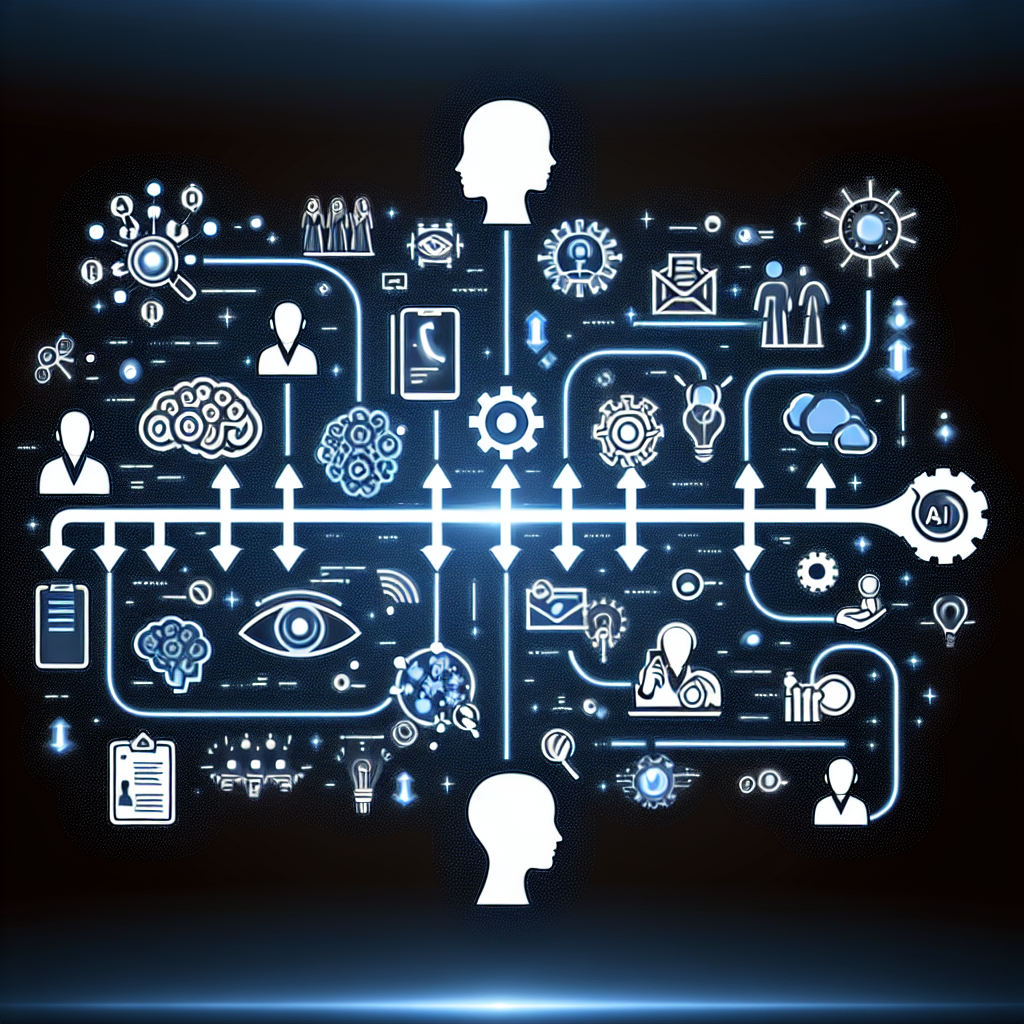The Evolution of AI Tools in Human Resources
Artificial Intelligence (AI) has been transforming the way businesses operate in various industries, including Human Resources (HR). AI tools have revolutionized HR processes by automating repetitive tasks, providing valuable insights, and improving decision-making. In this article, we will explore the evolution of AI tools in HR and their impact on the future of work.
Early Adoption of AI in HR
The use of AI in HR dates back to the early 2000s when companies started using AI-powered tools for recruitment and talent management. These tools helped in streamlining the hiring process by analyzing resumes, conducting pre-screening assessments, and identifying top candidates based on specific criteria.
One of the earliest applications of AI in HR was the use of chatbots for answering frequently asked questions by job applicants and employees. These chatbots were programmed to provide instant responses to common queries, saving HR professionals time and effort.
Another early adoption of AI in HR was the use of predictive analytics for workforce planning. By analyzing historical data and trends, AI tools could predict future hiring needs, identify potential retention risks, and recommend strategies for talent development.
The Rise of AI-Powered Recruitment Tools
As AI technology advanced, so did the capabilities of AI-powered recruitment tools. Today, companies use AI tools for sourcing candidates, conducting video interviews, and analyzing candidate data to make informed hiring decisions.
AI-powered recruitment platforms like HireVue and Pymetrics use algorithms to assess candidates’ skills, personality traits, and job fit. These tools help recruiters and hiring managers to identify the best candidates for a particular role, reducing bias and improving the overall quality of hires.
AI tools also play a crucial role in improving the candidate experience by providing personalized communication, scheduling interviews, and offering feedback. These tools help in creating a positive impression of the company and enhancing the employer brand.
The Impact of AI on Employee Engagement and Retention
AI tools have also been instrumental in improving employee engagement and retention. By analyzing employee feedback, sentiment analysis, and performance data, AI tools can identify potential issues that may impact employee satisfaction and productivity.
AI-powered tools like Glint and Culture Amp help companies to measure employee engagement, gather feedback, and take proactive steps to address any concerns. These tools provide valuable insights into the drivers of engagement, enabling HR professionals to implement targeted interventions and improve the overall employee experience.
AI tools also play a role in talent development and career progression. By analyzing performance data, skills gaps, and training needs, AI tools can recommend personalized learning opportunities and career paths for employees. This not only helps in retaining top talent but also in fostering a culture of continuous learning and development.
The Future of AI in HR
As AI technology continues to evolve, we can expect to see further advancements in AI tools for HR. Some of the emerging trends in AI-powered HR tools include:
1. Personalization: AI tools will become more personalized, offering tailored recommendations for recruitment, training, and career development based on individual preferences and behaviors.
2. Automation: AI tools will automate more HR processes, such as onboarding, performance evaluations, and compliance monitoring, freeing up HR professionals to focus on strategic initiatives.
3. Augmented decision-making: AI tools will augment human decision-making by providing data-driven insights, predictive analytics, and scenario planning to help HR professionals make informed decisions.
4. Ethical AI: As AI tools become more prevalent in HR, there will be a growing emphasis on ethical AI practices, such as transparency, fairness, and accountability in decision-making.
FAQs
1. What are some common AI tools used in HR?
Some common AI tools used in HR include chatbots for candidate screening, predictive analytics for workforce planning, recruitment platforms for sourcing candidates, and employee engagement tools for gathering feedback.
2. How can AI tools improve employee engagement?
AI tools can improve employee engagement by analyzing feedback, sentiment data, and performance metrics to identify areas of improvement, providing personalized learning opportunities, and offering career development paths.
3. What are the benefits of using AI tools in HR?
Some benefits of using AI tools in HR include streamlining recruitment processes, reducing bias in hiring decisions, improving employee engagement and retention, and fostering a culture of continuous learning and development.
4. How can companies ensure ethical AI practices in HR?
Companies can ensure ethical AI practices in HR by being transparent about the use of AI tools, ensuring fairness and accountability in decision-making, and regularly monitoring and evaluating the impact of AI on employees.
In conclusion, AI tools have come a long way in transforming HR processes and improving the overall employee experience. As technology continues to evolve, we can expect to see further advancements in AI-powered HR tools that will drive innovation, enhance decision-making, and shape the future of work. By embracing AI tools responsibly and ethically, companies can leverage the power of AI to attract, develop, and retain top talent in today’s competitive business landscape.

